|
|
Blog Roll Continued: Previous <
3 > Next
<Home> < 8 > <
7 > < 6 > <
5
>
< 4 >
< 3 > <
2 > <
1 >
|
|
|
|
|
The
Empathic Brain - Chapter by Chapter Book Review
Christian Keysers |
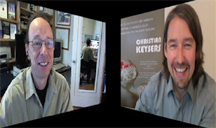 |
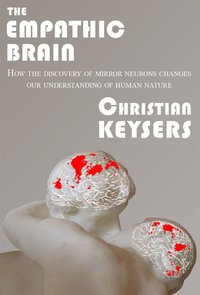 |
Christian Keysers is professor and group leader of the Social Brain Lab at
the University Medical Center Groningen in the Netherlands. The lab
explores the biological nature and neuroscience of empathy.
Christian is author of 'The Empathic Brain: How the Discovery of Mirror
Neurons Changes our Understanding of Human Nature'. |
In this interview, Christian gives a chapter
by chapter narration of the book, which explores the nut's and bolts
neuroscience of empathy. In the book, he illustrates the science with
his own experiences and with stories. The journey starts at the lab in
Parma, Italy where mirror neurons were first discovered and where he
also worked.
Sub Conference:
Science: Neuroscience.
|
|
|
|
|
|
Dialogs on How to Build a Culture of Empathy
George Lakoff
|
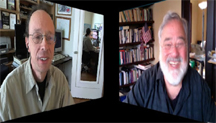 |
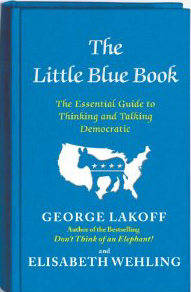 |
George Lakoff is a cognitive linguist and professor of
linguistics at the University of California, Berkeley. He is academically
most famous for his 'ideas about the centrality of metaphor to human
thinking, political behavior and society.' He says empathy is a
foundation of morality and of progressive values. |
George is the author of many academic and politically
related books.
His latest book is The Little Blue Book: The Essential Guide to Thinking
and Talking Democratic. 'A compact handbook on partisan political
discourse, with a blueprint for how liberals can switch from playing
defense against conservatives to launching a stronger offense.' Basing
the discourse on the foundational value of empathy. "America was founded
on a moral system and that system starts with empathy."
Sub Conference:
Science:
Neuroscience.
|
| |
| |
|
Happy the Movie -
Director Roko Belic talks with Edwin Rutsch about
how Empathy is a
Foundation of Happiness |
|
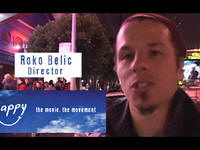
|
 (Movie
Trailer)
(Movie
Trailer) |
The core of human nature, I think, is
based on empathy and compassion. It's extremely rare to find someone
that does not empathize in some way or form naturally. The
Dalai
Lama said it best, it's not a religious
thing, it's not a political idea, this is the way we are born, this
is in our blood.
Empathy, compassion, living by the
golden rule, all of those things are so critical to, not only to
your own personal happiness, but to the sustainability of our
societies and of the human race. So empathy is, I think, one of the
core ingredients, not only for a happy life, but of a happy world.
On
Vimeo -
Youtube
Sub
Conference: Arts |
|
|
|
|
|
How to Build a Culture of Empathy with Photography
George Lewis
|
|
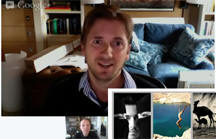 |
|
George Lewis is a photographer exploring the nature of
empathy. He says, "For me, one of the greatest challenges of the 21st
century is to make people more visible to one another, to find ways for
people to engage, empathize, and learn of each other’s deepest values and
concerns. We need to lay the foundations for a new global human identity,
one that transcends differences and is predicated on mutual understanding
and respect, celebrating the beauty of difference. In short my art is all
about Empathy. "
Sub Conference: Arts |
|
|
|
|
|
How to Build a Culture of Empathy Without
Pain in Healthcare
Issidoros
Sarinopoulos
|
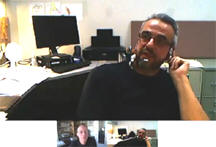 |
|
Issidoros Sarinopoulos (Sid) is Assistant Professor of
Psychology at Michigan State University where he is director of the Lab
for Social and Affective Neuroscience. Sid's research interests include
the psychological and neural underpinnings of emotion, judgment, decision
making, and social behavior.
His work integrates the theories and methods of
affective and social neuroscience on the one hand, and more traditional
disciplines in the social sciences on the other. |
|
Sid was part of a study looking at how an empathic
doctor-patient relationship reduces patients pain.
Listen up, doc: Empathy raises patients’ pain tolerance.
"A doctor-patient relationship built on trust and empathy
doesn’t just put patients at ease – it actually changes the brain’s
response to stress and increases pain tolerance, according to new findings
from a Michigan State University research team."
Sub Conferences: Health Care
and
Science |
|
|
|
|
|
How to Build a Culture of Empathy
with Fiction
Ron MacLean
|
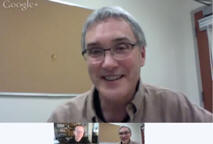 |
 |
Ron MacLean is author of the novels Headlong and Blue
Winnetka Skies and the story collection Why
the Long Face? His fiction has appeared in GQ, Fiction International,
Best Online Fiction 2010, and elsewhere. He is a recipient of the Frederick
Exley Award for Short Fiction and a multiple Pushcart Prize nominee. He
teaches at Grub Street in Boston. |
|
Ron wrote the article,
Is
Fiction Empathy’s Best Hope? We
discussed his article and the relationship of empathy and fiction writing.
He writes,
"What I do care about is the loss of our ability to identify with others.
Empathy is a muscle that must be exercised lest it atrophy. It’s a seed
that must be cultivated in order to grow—to live. And in a sped-up society
in which connection is increasingly fleeting and often virtual, we can’t
take empathy for granted anymore.....
It’s paradoxical, even absurd—this idea that made-up
stories can develop in us an essential human quality. The idea that
reading about people who don’t exist could expand our capacity to care
about, and act on behalf of, people who do. But it’s true."
Sub
Conference: Arts |
|
|
|
|
|
Panel 22: Empathy and Yoga:
Yoga is a tool kit for Empathy |
 |
Nixa
De Bellis
Michael Hewett
Elena Brower
Edwin Rutsch |
Yoga is a
tool kit for Empathy. In its methods we cultivate a feeling sense
of ourselves and the world. We both take measure of our own person
and revel in the multitude of relationships through an awareness
practice of deeper than ordinary looking and listening.
The logic of our differences, our similarities and
our sameness is not evident without practice, and so we have the
yoga technologies for actively engaging ourselves, our families,
our communities and our world.
Sub Conference: Yoga |
|
|
|
|
|
How to Build a Culture of Empathy
with Yoga
Suzanne Jones
|
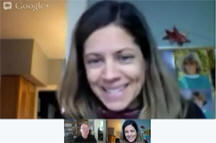 |
|
Suzanne Jones is a professional yoga instructor concerned
by the disparity in access to yoga practice as a powerful tool for
empowerment and recovery.
YogaHOPE
was created to facilitate access to yoga and meditation education
specifically for women experiencing debilitating life transitions – those
establishing independence from domestic violence, self-sufficiency from
homelessness, recovery from drug addiction, or rehabilitation after mental
illness. Sue recently wrote an article about empathy and yoga titled,
Exercise Your Empathy. |
|
She writes, "...when I was in the darkest time of my life
and planning my one shot at doing something right (ie. removing myself
from the world via swallowing a butt load of pain killers) I happened to
stumble into a yoga class. And as I learned how to really breathe and
concentrated on how to move my body in class and pay attention to how my
body was feeling inside, I activated these brain regions. I exercised my
empathy...
Because without empathy, we begin to stop being kind to ourselves. And
when that happens, we begin to withdraw from others and the cycle of
insidious self-destruction begins. Our brains are social organs and in
isolation they begin to suffer."
Sub Conference:
Yoga & Empathy |
|
|
|
|
|
Dialogs on How to Build a Culture of Empathy
and Compassion
Geshe Lobsang Negi
|
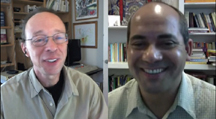 |
|
Geshe Lobsang Negi serves as Co-Director of the Emory-Tibet
Science Initiative and Co-Director of the Emory Collaborative of
Contemplative Studies. " In addition, he has contributed to the development
of a number of programs linking Emory University with Tibetan institutions
of higher learning in India.
|
His career has focused on the potential of mind to affect
well-being on physical, emotional an mental levels and is now centered in
three areas: Clinical research on the behavioral, immune and stress impacts
of contemplative practices; Developing and implementing a science
curriculum for Tibetan monastics; and Teaching Tibetan Buddhism both at
Emory University and Atlanta's Drepung Loseling." He is also the developer
of the
Cognitive-Based
Compassion Training (CBCT) which
draws on the the lojong tradition of Tibetan Buddhism to foster
compassion. This
training was studied to determine it's effectiveness in fostering
empathy by
Jennifer Mascaro
at Emory University.
Sub Conference:
Science
|
|
|
|
|
|
How to Build
a Culture of Empathy in Business
John Wenger
|
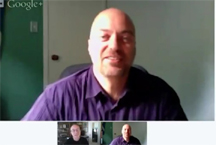 |
|
John
Wenger works at Quantum Shift in New Zealand. He
says, "As a sociatrist, I’m passionate about people in business
developing greater ability to stand in each others’ shoes.
It’s one of the
cornerstones of the work we do at Quantum Shift and is central to nurturing
greater health in organizations. This is often given the name “empathy... |
|
There is an embodied knowing that comes via the act of
role reversal, beyond mere thought and cognitive understanding, which
facilitates a deeper ability to live in someone else’s skin. Getting
this at a head, heart and gut level changes our world beyond what we
thought possible. It becomes harder to switch off our empathy and behave
as if people are mere resources when we have a full experience of what
it’s like for them." |
|
|
|
|
|
How
to Build a Culture of Empathy-Compassion with Education
Joshua Aaron Ginzler |
 |
 |
Joshua Aaron Ginzler is a
Psychologist with a focus on Mindfulness-Based Psychology which teaches
that thoughts simply exist & are your brain's attempt to make sense of your
emotional state & the external world. |
He says, "I am establishing
the only private center to bring a cadre of evidence-based
Mindfulness Psychology programs to the community in order to better
prepare the community to support the individuals and families that they
contain. "
Sub Conference:
Science
|
|
|
|
|
|
How to Build a Culture of Empathy with Buddhism
Thubten Chodron
|
 |
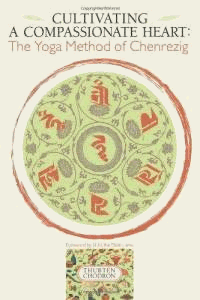 |
Thubten Chodron is an American Tibetan Buddhist nun and a
central figure in reinstating the ordination of women. She is founder and
Abbess of Sravasti Abbey, a Buddhist monastery near Newport, Washington.
Thubten is active in interfaith dialogue and does Dharma outreach in
prisons She is the author of many books, including,
Cultivating a
Compassionate Heart: The Yoga Method of Chenrezig. |
|
How
to build a culture of empathy and compassion?
1. Education in schools (how to identify emotions, how to work with them
inside, how to express them, how to empathize, non-violent
communication)
2. Media (influence what the media reports, what constitutes
entertainment? show examples of healthy conflict resolution)
3. Individuals familiarizing themselves with empathy and compassion on a
daily basis
4. Workplace (the feeling in the company depends a lot on the leader,
talks or courses an working with anger)
Sub Conference: Interfaith
|
|
|
|
|
|
How to Build a Culture of Empathy
with Circle
Process
Kay Pranis
|
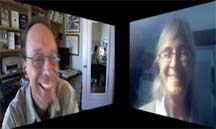 |
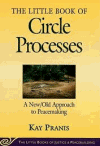 |
Kay Pranis is an independent trainer and facilitator for
peacemaking circles, as well as, an advocate and leader in Restorative Justice and Circle Process movements.
Kay has been involved in the development of circle processes in criminal
justice, schools, neighborhoods, families and the workplace. She is author of,
The Little Book Of Circle Processes: A
New/Old Approach To Peacemaking. |
"We have raised an entire generation without the prerequisites for
developing empathy and then are outraged when they seem not to care
about the impact of their behavior on others. We did not consciously
decide to raise them without empathy, but that is the result of
significant changes in our social behavior . The development of empathy requires:1. regular
feedback about how our actions are affecting others, respectfully
communicated
2. relationships in which we are valued and our worth is validated
3. experience of sympathy from others when we are in pain "
Sub
Conference: Justice
|
|
|
|
|
|
How to Build a Culture of Empathy and Compassion
Russell Kolts
|
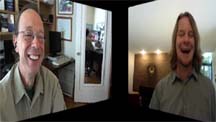 |
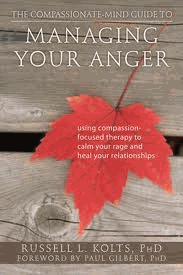 |
Russell Kolts is a professor in psychology at Eastern
Washington University. His current research and professional work is
focused upon Compassion Focused Therapy (CFT) and the application of CFT
in working with emotional difficulties, particularly anger and attachment
disturbances. |
Russell is author of 'The
Compassionate Mind Approach to Managing Your Anger.' The
Compassionate-Mind Guide to Managing Your Anger will show you how to
take responsibility for your anger and your life by cultivating a new
strength: the power of compassion.
Russell hosts the
CompassionateMind.net
website, which is the online hub of the Inland Northwest Compassionate Mind Center.
The center is committed to the development and application of
evidence-based practices utilizing the purposeful cultivation of
compassion and mindfulness to promote wellbeing.
Sub Conference:
Science
|
|
|
|
|
|
Shyness, Anxiety & How to Build a Culture of Empathy
Lynne Henderson
|
 |
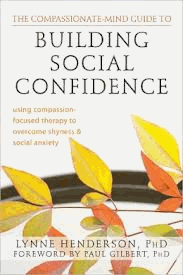 |
Lynne Henderson is director of the
Shyness Institute
and Director of the Stanford Shyness Clinic for over 25 yrs.
Lynne is author of
Building Social Confidence: Using Compassion-Focused Therapy to Overcome
Shyness and Social Anxiety.
The
book offers
a supportive program based in compassion-focused therapy for moving past
social anxiety and the self-critical thoughts that propel it.
|
How to build a culture of empathy?
1. Each of us practicing mindfulness and empathy ourselves consistently.
Making mindfulness part of daily life, continuing to increase the number
of classes/groups that have formed around mindfulness, disseminating
these from elementary school on.
2. Increasing funding for research related to mindfulness and empathy,
focusing on the beneficial results of empathy on the well being of self
and others.
3. Increasing the focus on and conducting more research on compassion
based psychotherapies such as my Social Fitness Training for shyness,
Gilbert’s Compassion Focused Therapy, and Acceptance and Commitment
Therapy. My book,
4. Increasing the understanding and practice
of compassion throughout the world through internet information
dissemination and putting psychological interventions online.
Sub Conference:
Science
|
|
|
|
|
|
How to Build a Culture of Empathy-Compassion with Science
Daryl Cameron
|
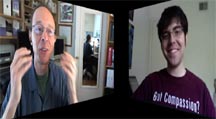 |
|
Daryl Cameron is a social psychology doctoral candidate at
UNC Chapel Hill. "I work at the crossroads of social psychology and
philosophy. My research examines the relationship between implicit social
cognition and moral decisions: how do automatic affective reactions and
deliberative reasoning interact to shape our moral lives?" Daryl's research focuses on the causes and consequences of compassion regulation;
and how implicit emotional processes contribute to moral decision-making.
|
"Psychological studies show that people feel more compassion for a
single victim than for multiple victims, a finding that has been
called "the collapse of compassion." The collapse of compassion should
strike you as shocking. Most people predict that they would --
and should -- feel more compassion if more people are suffering. Yet
people's emotional responses to actual victims tell otherwise. "
Daryl says, one way to increase empathy and compassion is
to make helping easy and not overwhelming. Create small easy steps that
people can do. Also develop trainings that build empathy and
compassionate resilience.
Sub Conference:
Science
|
|
|
|
|
|
How to Build a Culture of Empathy with Science
Piercarlo Valdesolo
|
 |
|
Piercarlo Valdesolo is
an Assistant Professor of
Psychology and head of the Moral Emotions and Trust Lab at
Claremont McKenna College. "I study the role of emotions in social and moral decision making. My
research program investigates the role of emotion in social judgment, with
a specific focus on how affective processes shape moral decisions and
prosocial/antisocial behavior at both the individual and intergroup levels." |
Piercarlo has two
main lines of research. One focuses on the role of synchronous movement
in arousing prosocial emotional responses. Two is on the psychological biases that contribute to unethical decision making and corruption within institutions and organizations.
One way Piercarlo says we can build empathy is by being more open and revealing more of
ourselves.
Sub Conference:
Science |
|
|
|
|
|
How to Build a Culture of Empathy with
Kinesthetic Empathy
Dee
Reynolds
|
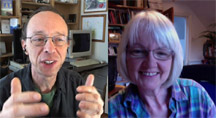 |
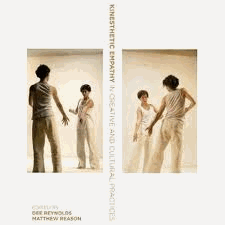 |
Dee Reynolds is
professor of French at the University of Manchester.
Dee
is editor/author of,
among other books, Kinesthetic
Empathy in Creative and Cultural Practices.
A
key interdisciplinary concept in our understanding of social interaction
across creative and |
cultural practices, kinesthetic empathy describes the ability to
experience empathy merely by observing the movements of another human
being.
Dee is a founder of the 'Watching Dance: Kinesthetic
Empathy' project that uses audience research and neuroscience to explore
how dance spectators respond to and identify with dance. It is a
multidisciplinary project, involving collaboration across organizations
and four institutions. The project has a website, Ning group and held a
conference.
Sub Conference: Arts
|
|
|
|
|
|
How to Build a Culture of Empathy and Compassion
Helen Weng
|
|
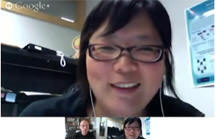 |
|
Helen
Weng is currently a doctoral student in clinical psychology
studying the Department of Psychology, Waisman Laboratory for
Brain Imaging and Behavior, and
Center for Investigating Healthy Minds at the University
of Wisconsin - Madison. Her long-term goals include
studying how interventions that increase love and compassion
impact both psychological and physical health in patients, and
how training these qualities in health care providers can
prevent burnout and improve patient outcomes.
Helen conducted a study titled,
Compassion
Training Alters Altruism and Neural Responses to Suffering.
"Compassion is a key
motivator of altruistic behavior, but little is known about
individuals’ capacity to cultivate compassion through
training. We examined whether compassion may be systematically
trained by testing whether (a) short-term compassion training
increases altruistic behavior and (b) individual differences
in altruism are associated with training-induced changes in
neural responses to suffering. "
Sub
Conference: Science |
|
|
|
How to Build a Culture of Empathy in Education
Hunter
Gehlbach
|
|
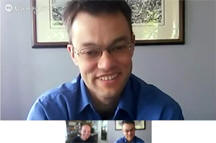 |
|
Hunter
Gehlbach is Associate Professor of Education at Harvard
Graduate School of Education. He is an educational
psychologist who brings social psychological principles to
bear on educational challenges. His research focuses on
improving educational settings through enhancing the social
interactions of teachers and students. His specific interests
within social psychology focus on social perspective taking –
how people discern the thoughts and feelings of others within
the classroom.
Hunter says, "Education is a fundamentally social act.
Almost all classroom learning (and much of the learning that
occurs outside of schools) involves social interaction – even
reading entails communication between author and reader. Our
lab group’s research strives to enhance these social
interactions. Primarily through bringing social psychological
principles to bear on educational problems, we aim to impact
students’ (and teachers’) learning, motivation, behavior, and
psychological well-being.
Our group focuses
particularly on social perspective taking – the capacity to
figure out the thoughts, feelings, and motivations of others –
which we view as the core aptitude that people employ to
navigate their social world. By helping teachers and students
improve their social perspective taking and better understand
where each other are coming from, we aspire to improve the
classroom experience for both students and teachers."
Sub
Conferences:
Education and
Science
|
|
|
|
|
|
|
Simon Fraser University’s Centre for Dialogue
(in Vancouver, BC, Canada)
uses dialogue to generate
non-partisan and constructive communication around difficult topics. They
partner with government, business, and community groups to explore critical
issues that impact the social, economic, environmental, and cultural
well-being of
their
communities. I interview three instructors from the University to hear
about how
they see
that
dialog relates to empathy.
|
|
|
|
Shauna Sylvester: Dialogs on How to Build a Culture of Empathy
|
|
 |
|
Shauna Sylvester is a Fellow at Simon Fraser University’s
Centre for Dialogue and is the Executive Director of SFU’s Carbon Talks, a
national initiative focused on increasing Canada’s global competitiveness
by shifting to a low carbon economy. Shauna is also the Executive Director
of the SFU Public Square – a signature project of SFU’s commitment to
engagement which convenes serious and productive dialogues on issues of
public concern to Canadians. |
|
|
|
|
|
|
|
|
|
Herb Barbolet: Dialogs on How to Build a Culture of Empathy
|
|
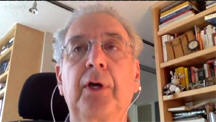 |
|
Herb Barbolet
has been active in community development for more than 30 years - Working
in community planning, energy conservation, citizen participation,
cooperative housing, and food and agriculture. He is an Associate at both
the Dialogue Centre and the
Centre for Sustainable Community Development at Simon Fraser University. |
|
|
|
|
|
|
Dialogs on How to
Build a Culture of Empathy
Wynn
Schwartz
|
|
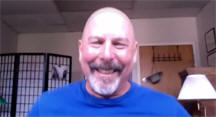 |
|
Wynn Schwartz a clinical psychologist and psychoanalyst
offering psychotherapy, consultation and supervision in Boston for more
than thirty years. He is professor on the core faculty of the Massachusetts
School of Professional Psychology and on the faculty of Harvard Medical
School. He supervises trainee psychotherapists at The Cambridge Hospital.
Wynn has written several articles about empathy. He says,
"Empathy involves the accurate communication of an appreciation of another
person's ongoing intentional actions in a fashion that the other person can
tolerate. This appreciation requires understanding the other person's view
of their world and of their place in it. Empathy is an ordinary feature of
life, a natural aspect of the unfolding improvisation of our linked
behaviors. We act together from our understanding of what the other is
trying to do."
Sub Conferences:
Science |
Blog Roll Continued:
Previous < 3 >
Next
|
|